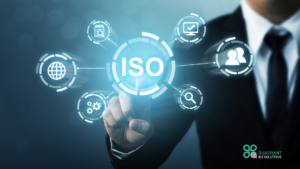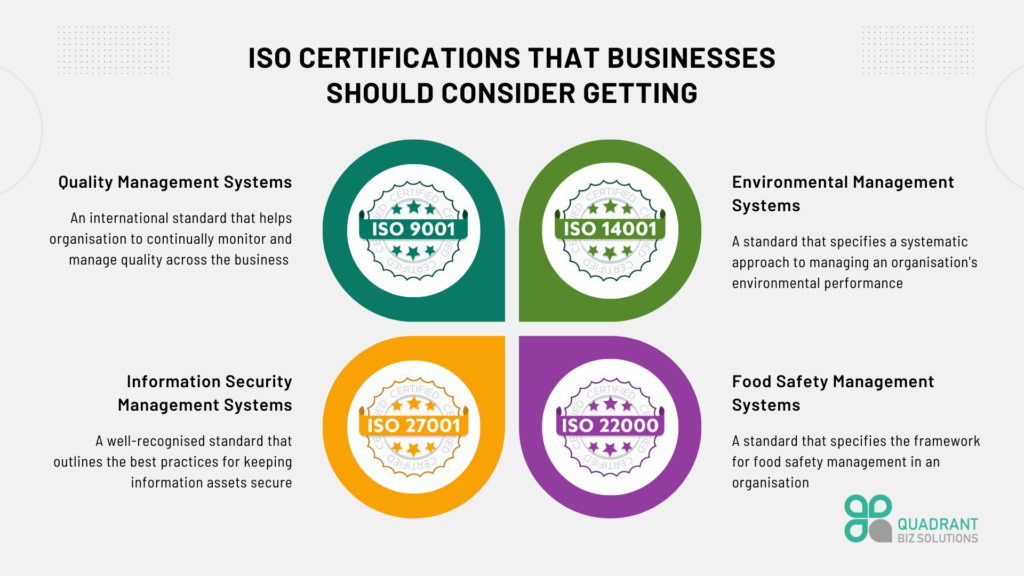

1. ISO/IEC 27001 – Information Security Management Systems (ISMS)
ISO 27001 is a well-recognised standard that outlines the best practices for information security management systems (ISMS). It helps companies to keep their information assets secure.
In Malaysia, financial institutions (FIs) and healthcare are regulated by Securities Commission and Bank Negara Malaysia to comply to ISO 27001, due to their nature in processing highly sensitive information. Some key benefits of implementing this standard include:
- Protect sensitive information: Helps organisations to identify and protect their sensitive information assets, such as financial data, customer data, and intellectual property.
- Compliance with regulations: Many industries require compliance with certain regulations and standards, and ISO 27001 certification can help organisations meet these requirements.
- Risk management: Provides a framework for identifying and managing information security risks, ensuring that organisations can anticipate and mitigate potential threats.
- Competitive advantage: Companies that are ISO 27001 certified demonstrate to their clients and stakeholders that they are proactively managing their information security risks, providing a competitive advantage over those that do not have this certification.
In the era of digitalization, securing our data becomes extremely important. Any data breach or loss has huge implications on privacy and business reputation. Hence, any organisation that handles sensitive information should adopt the ISO 27001 framework, regardless of the industry.
2. ISO 9001 – Quality Management Systems (QMS)
ISO 9001 is a set of processes, policies, and procedures that organisations use to demonstrate the ability to consistently provide products and services that meet customer and regulatory requirements.
The industries that can benefit from being ISO 9001 certified include construction, engineering, manufacturing, hospitality, and healthcare. Some key benefits of ISO 9001 certification include:
- Continually improve, streamline operations and reduce costs
- Win more business and compete in tenders
- Satisfy more customers
- Be more resilient and build a sustainable business
- Work effectively with stakeholders and suppliers
Overall, ISO 9001 provides a framework to ensure that customers get consistent, good-quality products and services, which will in turn bring many business benefits.
3. ISO 14001 – Environmental Management Systems (EMS)
ISO 14001 is an internationally recognised standard that specifies a systematic approach to managing an organisation’s environmental performance, including its impact on air, water, land, and natural resources. For some industries, ISO 14001 certification may be a legal or contractual requirements.
With Environmental Social Governance (ESG) fast becoming one of the main considerations for companies, gaining an ISO 14001 certification can be a useful tool to add credibility by demonstrating that your product or service meets the environmental protection expectations. This will in turn improve your ESG score as it indicates a company’s commitment to reducing its environmental impact.
Some key ESG benefits of ISO 14001 certification include:
- Cost savings particularly in resource, waste and energy management
- Improve efficiency across product life cycle to reduce environmental impact
- Improve corporate credibility which will help to attract new customers
- Ensure compliance with environmental legislation to avoid fines and prosecution
- Improve ESG score used by investors when considering investments
Although the standard is voluntary, by implementing ISO 14001, an organisation will be better positioned to meet future regulations and legislation on sustainable development.
4. ISO 22000 – Food Safety Management Systems (FSMS)
ISO 22000 provides a framework for organisations in the food industry to identify and control food safety hazards, ensure compliance with legal and regulatory requirements, and improve overall food safety performance.
It applies to any organisation involved in the food chain, including food manufacturers, processors, retailers, and service providers. It incorporates the principles of Hazard Analysis and Critical Control Points (HACCP) and is aligned with other ISO management system standards, such as ISO 9001.
The benefits of adopting this standard for an organisation include:
- Improved food safety performance: Provides a systematic approach to identifying and controlling food safety hazards, helping to prevent foodborne illnesses and improve food safety performance.
- Compliance with legal and regulatory requirements: Demonstrates an organisation’s compliance with legal and regulatory requirements related to food safety, reducing the risk of legal liabilities and fines.
- Enhanced reputation: Enhances an organisation’s reputation as a reliable and trustworthy supplier of safe food products, helping to increase customer satisfaction.
- Improved efficiency and productivity: Helps to streamline food safety processes, reducing the risk of errors and increasing efficiency and productivity.
With the increased demand from customers and regulators for food safety and hygiene, ISO 22000 provides assurance to customers and regulators that the organisation has implemented an effective food safety management system.
Conclusion
Overall, obtaining ISO certifications can bring many long term benefits to businesses – they provide a systematic approach to management, helping organisations to improve their performance, enhance their reputation and credibility, comply with legal and regulatory requirements, meet customer expectations, and improve risk and supply chain management.
For information on how to be ISO certified, visit local Certification Body SIRIM to find out more.
